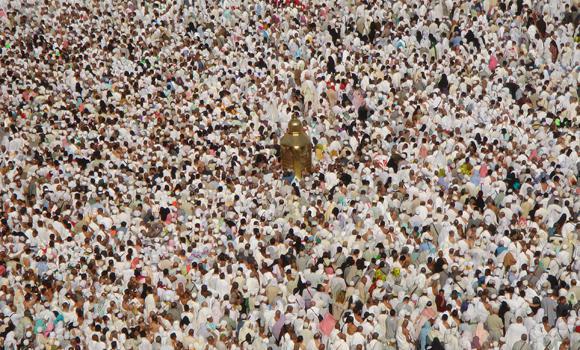
Jeddah, Mar 23: A large number of Umrah pilgrims arriving from Asian countries this week are about to set a new record.
The Ministry of Haj has indicated that more than 6 million pilgrims are likely to come for Umrah this year, up from 5.5 million last year.
The season opened on Dec. 14 last year, and will close on Aug. 22.
Airlines operating flights to Jeddah are reportedly fully booked for Umrah pilgrims and as a result expatriates in the Kingdom are finding it difficult to get seats. Almost all airlines have raised airfares to Jeddah by nearly 25 percent, according to figures posted by various airlines.
Despite recent efforts by the government to streamline the procedure at airports, some Umrah operators are not following procedures. This year, the ministry announced a new system for foreign travel agents to provide contract details of pilgrims. Pilgrims, however, are arriving without stickers containing that information on their passports.
Pilgrims are also complaining that upon arrival they are clueless about their Umrah companies or tour operators. “This is continuing to result in chaos, ” said one pilgrim as he arrived at King Abdulaziz International Airport in Jeddah.
The ministry insists that Umrah companies provide proper accommodations and transport for pilgrims. Over 200 Umrah companies were closed down for violating regulations.
The post-Umrah tourism packages are currently only for pilgrims from the US, Europe, Malaysia and Singapore and a few other countries.
Meanwhile, costs of Umrah packages are rising in Pakistan, India and Turkey.
Hotels in Makkah have a capacity of 1.4 million pilgrims a month.





Comments
Hi there are using Wordpress for your blog platform? I'm new to the blog world but
I'm trying to get started and set up my own. Do you need any coding knowledge
to make your own blog? Any help would be really appreciated!
Also visit my page; Vietnam tours package: http://www.gialinhtravel.com/typologies-packages/Vietnam-tours
Add new comment